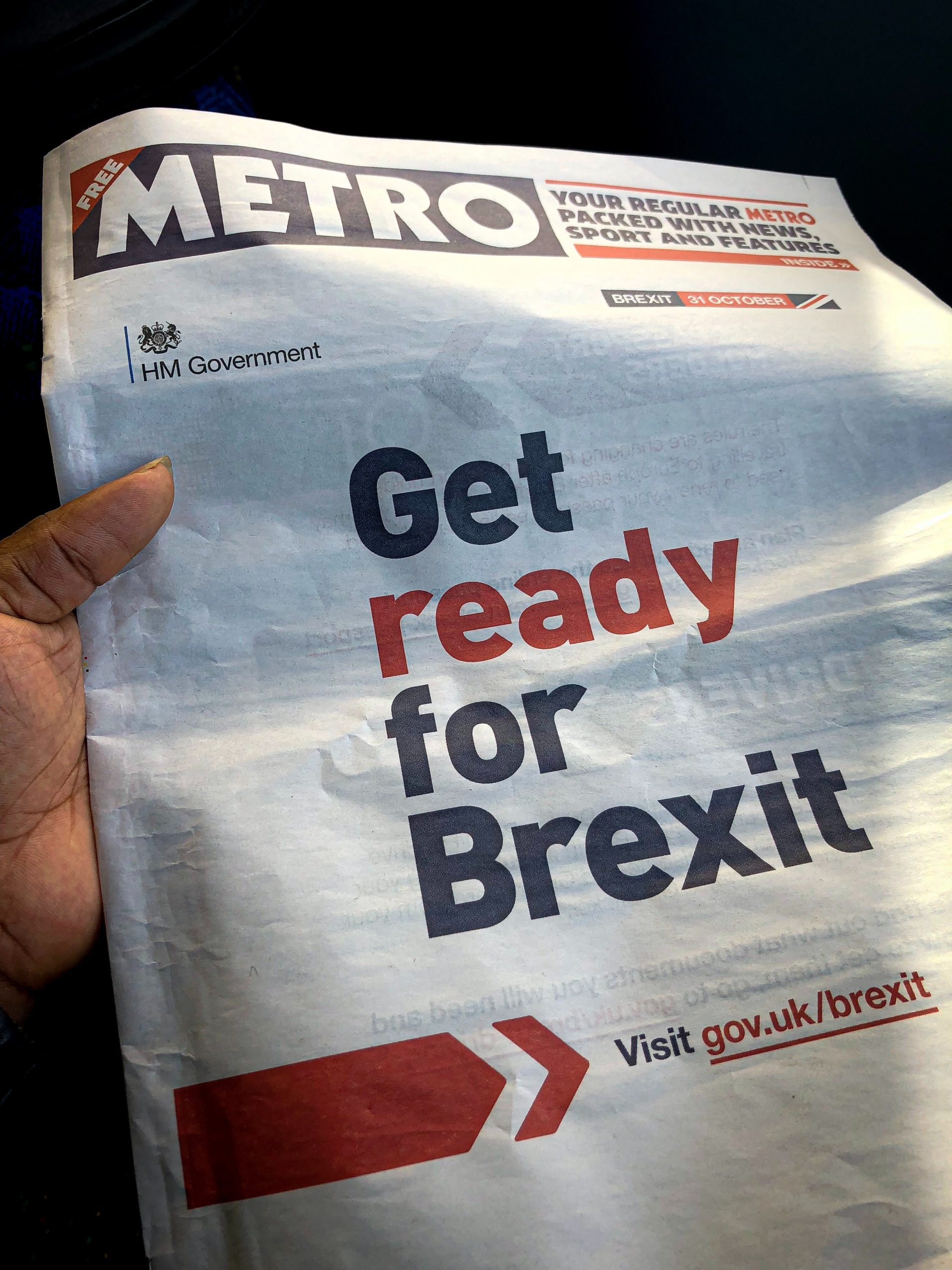With implications reaching far beyond the UK borders, the results of an eventual Brexit deal are crucial to the strategic planning of all global businesses. Universal Partners FX, foreign exchange experts based in London, share an update on the Brexit evolution.
This article will take about 4 minutes to read
Since the original vote in 2016, Brexit has been a hot topic of conversation and debate for business leaders around the world. Given the UK’s central position in the global financial and trade markets, as well as its strong ties to both North America and Europe, the outcome of an eventual Brexit deal will have ramifications beyond the island nation itself.
The Implications for International Businesses
Formal Brexit talks began in March and continued throughout the pandemic. If both sides fail to reach an agreement, the UK will trade with the EU based on the Geneva-based World Trade Organization rules.
As it stands, the EU summit on November 19th is seen as the deadline for a potential draft Brexit deal. With the agreed-upon 11-month transition period coming to an end on December 31, 2020, it is still unclear what would be the precise impact of Brexit on businesses. There are, however, some proposed changes that would have immediate impacts on global businesses. Namely, changes made to the free trade of goods and services agreements across the EU, as well as the free movement of employees.
Depending on the nature of your business, the process of recruiting employees from the EU to the UK, or from the UK to your headquarters elsewhere, may become much more complicated.
For those operating in the Trade and Supply Chain sector, these immediate changes may cause delays in ports when importing and exporting goods. Related changes regarding customs and border tariffs, regulations, the use of personal data, and safety standards are on the table as well.
For global investors and CEOs alike, the highest cause for concern are the barriers to free trade and the potential risk of reduced investment in or with the UK. Regarding these changes, the summit on November 19 may provide some valuable indicators.
An Update on Brexit Negotiations
Trading negotiations continue, as the two sides have yet to come to an agreement regarding fishing rights. The disagreement lies in the level of access allowed to EU fishing fleets on British waters. Ultimately this will fall within the agreements on fair competition rules for businesses, including rules on domestic subsidies and mechanisms incorporated in the final treaty for resolving future disputes.
As the general director of the Confederation of British Industry (CBI) Dame Carolyn Fairbairn warned, the removal of tariffs would be “existential” for the car industry. Even in the case of a successful deal, many groups are concerned with the dangers to trade, such as a rise in bureaucracy and border issues.
With Covid-19 eating up government cash reserves many businesses hope that the Brexit transition period will be extended.
However, Fairbairn maintains that the best thing for businesses is a deal to avoid disruption.

The Implications for an Incoming US Government
A Brexit deal will also be welcomed by a Joe Biden White House.
“Any trade deal between the US and UK must be contingent upon respect for the [Good Friday] Agreement and preventing the return of a hard border. Period.”
– Joe Biden, US President-Elect
UK Prime Minister Boris Johnson seems to think that favorable terms can be achieved with the United States, stating: “I think when they understand what we are trying to do they will share our ambition and concern which is to protect the peace process.”
Foreign Exchange in the Time of Brexit
The pound has proven to be very sensitive to Brexit news, with any uncertainty or optimism creating volatility. After the Brexit referendum, the Sterling declined sharply in value, making imports more expensive and exports cheaper. Until an agreement is reached between the UK and EU, markets expect currency volatility to continue until at least December 31st, 2020, when the Brexit transition period ends.
Over the last several weeks, Chief Brexit negotiator Michel Barnier has been engaged in intensive talks with the UK government in a final bid to reach an agreement and settle unresolved issues. According to a Bloomberg report, a deal is attainable. Both sides are actively working on an agreement concerning both the creation of a level competitive playing field as well as state aid. This focus has helped offer fresh impetus to the pound, which suffered after the original Brexit announcement.
However, as these agreements are still in progress, the markets remain uncertain and therefore vulnerable to volatility. Investors and business leaders expect to see more concrete plans moving forward.
The Impact of a No-Deal Brexit on Global Businesses
A no-deal Brexit will bring uncertainty in politics, the economy, and trade, in addition to creating certain volatility in currency valuation. With new regulations and legal processes forthcoming, businesses will need to engage in cautious planning and be ready to adapt to new realities.
If the UK leaves without a deal, international investments may be postponed due to the uncertainty creating inevitable economic contraction and resulting in limited liquidity. A resulting potential economic recession and stock market volatility will have a significant impact on sales and business confidence, as well as investment. However, as trading arrangements slowly come into place and the uncertainty dissolves, investors will feel more confident again. Currency fluctuation and unpredictable currency movements will be expected, further affecting contracting and business security.
Disruptions in supply chains including costs from tariffs, administrative and regulatory costs, are also to be expected. In terms of taxes, businesses based on EU tax structures may need to readjust themselves, as alternative UK tax structures may take time to develop.
Most importantly, a weak Sterling will have a hard impact on businesses’ profitability, both nationally and internationally. Executives should plan for this. Effect on cash flow can be mitigated by calculating the exchange rates, running financial forecasts at current exchange rates, and assessing the potential outcomes.
In many ways, a weakening pound can be good as it makes British exports cheaper, improving competitiveness and strengthening partnerships with foreign importers of British goods. However, as these businesses may also have to import raw materials that are more expensive, the benefit of a weak currency is limited.
Potential deal outcome and currency forecast: A Canada-style Agreement
While Prime Minister Johnson has previously stated that a “no-deal” would, in fact, be a good outcome, Whitehall officials have reported that Johnson does want a deal, just not at any price. For many businesses, it has become apparent that any deal at this point will mean damage limitation.
Today, a likely avenue seems to lie in what UK negotiators are calling a “Canada” deal. A Canada trade agreement, also known as the Comprehensive Economic and Trade Agreement, or CETA for short, refers to the agreement Canada reached with the EU in 2017. CETA removes most, but not all, tariffs on traded goods between Canada and the EU, increases trade quotas, protects EU geographical indications, and allows for bidding on government contracts. On top of these allowances, Britain has demanded bonuses, such as mutual recognition of qualifications (from lorry drivers to architects).
If a Canada-style agreement is reached, uncertainty in the market is very likely, as the proposal leaves a lot to be desired when it comes to trade and financial services. However, striking a deal such as this, even if it is lacking, is very important for Britain’s future economy, as well as British politics and society.
For businesses, reaching an agreement will offer some certainty and clarity about how to organize and plan their operations for the coming years. Without a deal, millions of businesses and consumers will face disruption, additional tariffs, and quotas.
Ultimately, a deal needs to be struck by November, as the approval of both the UK and European parliaments is required. Despite the difficulties, the prime minister confirmed on Sunday that a trade and security deal was “there to be done” with the broad outline being “pretty clear.” European Parliament members (MEPs) have requested to have an agreement by next Monday, November 16, in order to start the ratification process. Universal Partners FX are experts in foreign exchange, helping businesses and individuals safely send money overseas whilst getting the very best exchange rates.




